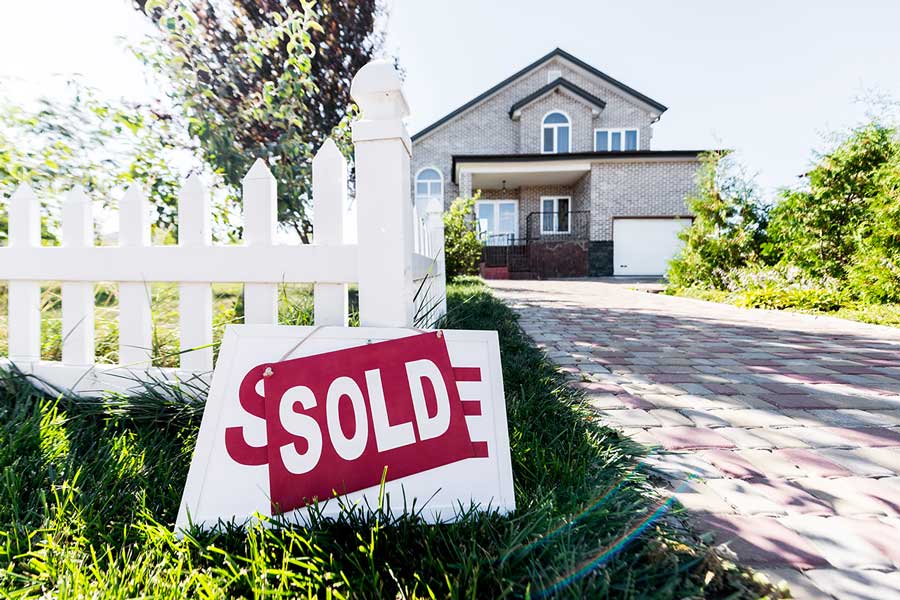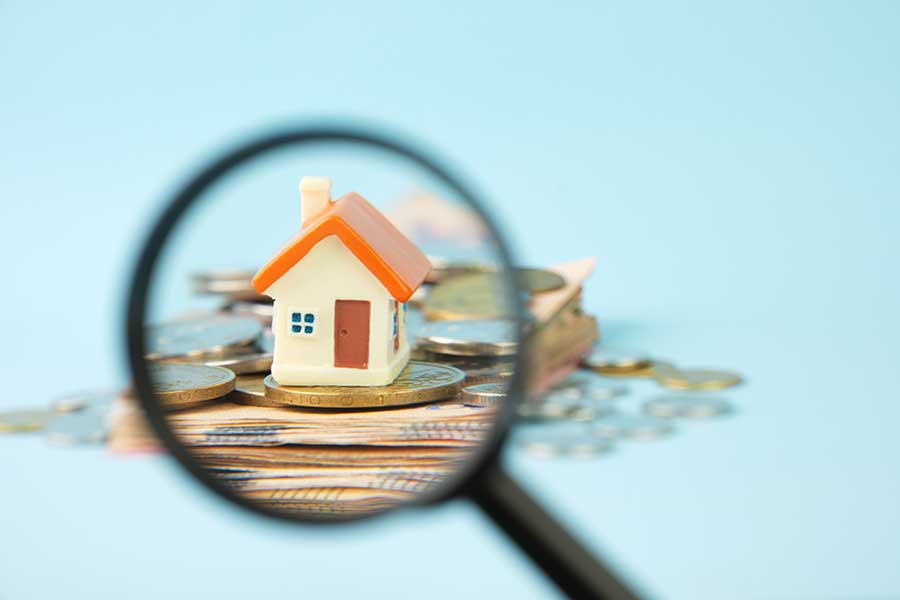
Real Estate Investing For Beginners in 2025
Short Summary
- Real estate investing offers potential for financial freedom, passive income, and long-term appreciation.
- Beginner investors should research popular strategies such as wholesaling, flipping houses, flipping vacant land, and the BRRR (Buy, Rehab, Rent, Refinance) method for recurring monthly income.
- Common mistakes to avoid include overpaying for properties, underestimating repair costs, and failing to properly screen tenants.
Table of Contents
Do you want to skip around? Click the orange tab on the left to see the full Table of Contents. Click on the topic you want to read and it will take you to that part of this guide. If not, start at the beginning with "Why Invest in Real Estate?" below.WHY INVEST IN REAL ESTATE?

Real estate investing offers a world of opportunities for wealth-building. We specialize in teaching you the best real estate investing strategies for residential real estate investing. We help you find off-market real estate deals that are not listed on the MLS, so you have less competition and higher profit margins, which allows you to maximize the benefits of investing in properties.
The customary approach to real estate investing entails:
- Purchasing a property
- Leasing it out to occupants
- Generating rental income
- Benefiting from the property's long-term appreciation
Real estate investing is hard work, but we have taken over 20 years of experience to improve upon and simplify the customary real estate investing approach.
Our UNIQUE approach to real estate investing focuses on helping you create your best life and financial freedom through real estate investing. This is a very attractive real estate business as it opens the possibility to generate immediate income, passive income, and long-term appreciation.
Member Highlight: Ptolemy has 20 years experience as a teacher, but wanted to start supplementing his teacher salary with some real estate deals. He chose The Investor's Edge for his first deal because we work with 1st time flippers and walk them through the entire process. He is expecting to make around $80,000 to $100,000 in profit on this flip. He wants to do more flips to upgrade his lifestyle for himself, his wife, and his kids. Watch his experience now.
Financial Freedom
Financial freedom is the ultimate goal for many investors, and real estate investing can help you achieve it. By generating a reliable source of income, you can cover your living expenses and save for the future.
We have mapped out a real estate investing strategy that gives you the stepping stones and tools to reach financial freedom no matter your current financial situation. These strategies include:
- Wholesaling Houses
- Flipping Houses
- Flipping Vacant Land
- BRRR (Buy, Rehab, Rent, Refinance) for monthly recurring income
- Becoming a Hard Money Lending partner with us to earn double digit interest rates on real estate deals
Even a novice can join the ranks of our successful real estate investors, turning a part-time side-hustle into a full-time business that provides both financial freedom and time freedom.
Educational Video: Real Estate Investing for Retirement (Your Financial Freedom Plan)
Watch our CEO, Ryan G. Wright explain how we help you map out your financial freedom plan that you can accelerate with real estate investing:
Passive Income
The beauty of real estate investing lies in its ability to generate passive income. With rental properties, you can enjoy a steady stream of cash flow from tenants without active involvement in daily operations. This income, combined with the potential property appreciation, allows you to grow your wealth over time.
Furthermore, investing in our hard money loans for flipping houses allows you to benefit from real estate deals without having to do the rehab or manage the property, offering a hands-off approach to real estate investing.
Long-Term Appreciation
Real estate investments tend to appreciate over time, increasing the value of the property and building wealth for the investor. Factors that contribute to long-term appreciation include inflation, increasing demand, and improvements made to the property.
By strategically investing in properties with high appreciation potential, you can secure your financial future and enjoy the benefits of long-term wealth accumulation.
MEMBER HIGHLIGHT:
Our members Joe and Chelsea are investing in real estate to create generational wealth. Watch this interview about their experience flipping a house with The Investor's Edge.
"I think we'll come out $40,000 ahead on this one."
TOP STRATEGIES FOR BEGINNER REAL ESTATE INVESTORS

As a beginner real estate investor, it's crucial to explore various investment strategies to find the one that aligns with your goals and risk tolerance. Five popular strategies for novice investors are:
1. Wholesaling Houses
2. Flipping Houses
3. Flipping Vacant Land
4. BRRR (Buy, Rehab, Rent, Refinance) for monthly recurring income
5. Becoming a Hard Money Lending partner with us to earn double digit interest rates on real estate deals.
Each of these strategies offers its advantages and challenges. There is no guarantee on any of these strategies, but over time, this is what we have seen:
- Wholesaling Houses: Focuses on a short-term way to generate around $3,000 to $8,000 in a few weeks so you can build liquidity to do bigger deals.
- Flipping Houses: Focuses on a way to generate around $10,000 to $60,000 in profit (results vary) in around 5 to 12 months to help you build liquidity to do be able to do a BRRR deal for rental income.
- Flipping Vacant Land: Focuses on a way to make around $15,000 to $30,000 in profit (results vary) in around 9 to 12 months. No rehab needed. Another way to build liquidity for BRRR deal for rental income.
- BRRR (Buy, Rehab, Rent, Refinance) for monthly recurring income: A BRRR deal is like a house flip, but instead of selling the property you rent it out and get a long-term loan. You typically need at least 20% equity or down payment to get a long-term loan. This is why you've been building your liquidity. This is an excellent way to make around $100 to $1,500 monthly recurring income. (results vary)
- Becoming a Hard Money Lending partner with us to earn double digit interest rates on real estate deals with us: Once you've built up your income and qualify as an accredited investor, you now have the opportunity to partner with us to lend on hard money loans for our members who are flipping houses. This allows you to make double digit interest rates (results vary), while we handle the project management and every part of the loan. This is a great way to make awesome returns with a hands-off approach.
Let's delve deeper into these strategies and understand how they can help you achieve your real estate investment goals.
Wholesaling
Wholesaling is a popular strategy among beginner real estate investors, offering a low-cost entry point into the world of real estate investing.
In wholesaling, you:
- Find discounted properties
- Negotiate a deal with the seller
- sell the property to another buyer for a fee
You are getting paid for acting as an intermediaries in the transaction.
This strategy is attractive for novice investors, as it does not require substantial capital to start.
To succeed in wholesaling, it's crucial to build a strong network of potential buyers, as well as learn how to find and evaluate properties that can be wholesaled for a profit.
By developing the necessary skills and relationships, you can effectively wholesale properties and generate income without having to manage properties directly.
At the Investor's Edge, our members get access to a wholesaling system that helps you find off-market deals to wholesale. Once you find and negotiate the deal, we have a network of buyers who are looking for wholesale deals. This helps you get paid faster so you can build your capital to do a larger deal.
Watch this video from our CEO, Ryan G. Wright on...
The 7 Steps To The Whole Process (From Beginning to End)

Flipping Houses
Flipping houses is an active and potentially profitable real estate investment strategy that involves:
- buying properties at a discount
- renovating the property
- selling the renovated property for a profit
This strategy requires a good understanding of the real estate market, as well as the ability to accurately estimate repair costs and property values.
Flipping houses can be a lucrative endeavor when done correctly, but it's crucial to be aware of the potential risks:
- overspending on repairs
- being unable to sell the property if market conditions are unfavorable
To excel in house flipping, it's essential to have the software to find off-market deals, the right team to guide you through the process, build a solid network of real estate agents, contractors, and other professionals who can help you evaluate, rehab, and sell your investment properties.
By conducting thorough due diligence and carefully managing your renovation budget, you can maximize your profits and minimize the risks associated with flipping houses.
MEMBER HIGHLIGHT:
See what Charles had to say about his first house flip with The Investor's Edge.
"This property, actually, is going to profit us $70,000, for our first flip."
Flipping Vacant Land
If you don't want to mess with the rehab on a property, flipping vacant land might be the right choice for you.
Using our proprietary software, our members are able to locate off-market vacant land deals at a discounted price.
After valuing the land and verifying it's a great deal, you get the vacant land under contract and hire a vacant land real estate agent to sell it for you at fair market value for a profit.
This strategy allows our members to flip vacant land all over the United States. Many of our vacant land flippers also flip properties out of state on properties they've never even seen.
This is a great way to start building up your capital so you have enough to do a BRRR deal that generates monthly recurring cashflow from your tenants. To do a BRRR deal you usually need at least 20% down to get the long-term financing. That's why many of our new real estate investors choose this as a profitable way to accrue that money for their first BRRR deal.
The BRRR Method (Buy, Rehab, Rent, Refinance)
Wholesaling, Flipping Houses, and Flipping Vacant Land are all a means to start doing the BRRR Method.
BRRR stands for:
- Buy
- Rehab
- Rent
- Refinance
The buying part of this strategy is the same.
- Our members use our proprietary software to find off-market deals at a discounted price.
Once the property has been evaluated and verified that it's a great deal, the property is purchased with a short-term hard money loan.
A hard money loan is based on the after repair value of the property and not your credit score or job history. The interest rates are higher on a hard money loan, but it's usually only a 5 to 12 month loan. The hard money loan covers both:
- the price to purchase the property
- the cost of the rehab
Most traditional banks won't loan on a property that needs significant repair. If they do, they only lend on the current value and not the after repair value (ARV). The Investor's Edge offers up to 100% financing for your hard money loan.
Then, the rehab begins and is completed on time and hopefully within budget.
This is where the process is different from just flipping a house. In this case, you're going to keep the house and rent it out. You will already know the current rental rates from your initial research and you'll use those rates to secure your tenants. Our members get access to all of the contracts needed for this process. Once you have your tenants in your property, you'll be ready for the last step.
The last step is to refinance the property. The reason you're going to refinance the property is that you'll need to pay off the hard money loan and get a long term low percentage 30-year mortgage from your traditional bank. Most traditional banks are going to require at least 20% down or 20% in equity to get a traditional 30-year loan with them. Once you secure the loan, it will pay off your short-term hard money loan and now you'll have a lower cost mortgage that makes it more profitable for a long-term rental.
Once you've completed the BRRR method, you've now got a property that has the potential to generate income month after month from your tenants. This is where you can start building a portfolio of these types of properties, which eventually can lead to financial freedom and time freedom.
Some of our members will pull out some of the extra equity on the refinance to roll into their next BRRR property.
We have a unique system that guides you through this entire process.
Becoming a Hard Money Lender with The Investor's Edge
You've worked hard to build your real estate portfolio. Once you qualify as an accredited investor, you'll have the chance to earn double digit interest rates funding hard money loans with us at The Investor's Edge.
This is a great way to keep growing your portfolio with a hands-off approach.
This is the last step that turns you from a beginner to a an experienced pro. This is the step that truly earns you financial freedom and time freedom. We can't wait to help you get to this point in your real estate investing journey.
There are 8 ways you can qualify as an accredited investor set forth by the Securities Act of 1933, Rule 501 of Regulation D. Most of our accredited investors fall under rules 6 or 7.
- 6. Applicant is a natural person who has individual net worth, or joint net worth with the person’s spouse, that exceeds $1 million at the time of the purchase (Excluding Primary Residence);
- 7. Applicant is a natural person with income exceeding $200,000 in each of the two most recent years or joint income with a spouse exceeding $300,000 for those years and a reasonable expectation of the same income level in the current year;
You can learn more about this by going to our Hard Money Lender Page.
CHOOSING THE RIGHT INVESTMENT PROPERTY

Selecting the right investment property is a crucial step in your real estate investing journey. This decision will significantly impact your potential return on investment and the overall success of your real estate endeavors. To make the best choice, you need to consider several factors, including:
- Location,
- Property Type
- Budget Considerations
By carefully analyzing these factors and understanding how they influence property values, rental demand, and appreciation potential. You can make informed decisions that will maximize your chances of success in real estate investing. Let’s explore these factors in more detail.
Location Analysis
Location is a critical factor in determining the potential success of a real estate investment, as it impacts property values, rental demand, and appreciation potential. When evaluating a location, consider factors such as housing demand, market trends, and potential for growth.
A popular saying among real estate investors is to “buy the worst-looking house in the best neighborhood,” emphasizing the importance of location over the current condition of the property. By focusing on properties in desirable locations with strong growth potential, you can maximize your chances of success in real estate investing.
We have a proprietary software that allows our members to find the best off-market deals taking into consideration the location analysis. This sets us apart as a top option for real estate investment beginners.
Property Type Selection
Choosing the right property type is essential for aligning with your investment goals, expertise, and risk tolerance. Different property types, such as single-family homes, multi-family homes, and commercial properties, come with their own set of benefits and challenges, as well as maintenance requirements and tenant demographics.
By understanding the unique characteristics and potential returns of each real estate property type, you can make informed decisions that will help you achieve your real estate investment objectives.
We help our real estate beginners start with single family homes. We have over 20 years of experience in helping brand new real estate investors identify the right property type. We follow the data and love helping you find off-market properties at a reduced price.
Budget Considerations
Budget considerations play a vital role in real estate investing. When setting your budget, it’s essential to factor in:
-
The purchase price
- A reliable rehab estimate
-
Ongoing expenses, such as property taxes, insurance, and maintenance costs
-
Potential sources of income, such as rental income or resale value
By considering these factors, you can determine the maximum amount you’re willing to invest in a property.
By carefully considering your budget, you can:
-
Avoid overextending yourself financially
-
Ensure that you have enough resources to cover any unexpected expenses or market fluctuations
-
Maximize your returns
-
Minimize your risks
-
Set yourself up for success in real estate investing.
These budget considerations will also help you decide where to start on your real estate investing journey. If you don't have a big budget, you'll probably start with wholesaling. If you have a small budget, you might start with flipping a house. We have a team of experts to help you see what kind of budget you have and what would be your best type of investment to start with. Our ultimate goal is to help you build a budget that will let you BRRR for rental income or have enough to start doing hard money loans for double digit interest rate returns.
MEMBER HIGHLIGHT:
Carolyn decided to do her first real estate deal to change her financial reality. She wanted to spend more time with her kids and give them more opportunities.
"This property, I'm actually blessed to say that I get to refinance it and I'm going to be able to pull $30,000 out just from the equity. If we wanted to sell it, our total payoff is around $85,000."
FINANCING YOUR REAL ESTATE INVESTMENT

Financing is a crucial aspect of real estate investing, as it enables you to acquire properties and grow your portfolio. Your real estate deal will dictate the kind of financing depending on the condition of the property. There are several financing options available for real estate investments, including:
-
Hard Money Loans
-
Conventional mortgages
-
FHA loans
Determining the best financing option for your real estate investment depends on factors such as your credit history, down payment, value of the property, and investment goals.
By understanding the different financing options and their requirements, you can make informed decisions about which option is best suited for your specific situation. This will allow you to secure the necessary funding for your real estate investments and maximize your chances of success.
Educational Video: Understanding Hard Money vs. Traditional Loans: 100% Financing
Watch our CEO, Ryan G. Wright explain the difference between hard money loans and traditional loans and when to use them when real estate investing:
Hard Money Loans
If you've bought a home to live in, you're most likely familiar with traditional loans. If you're new to flipping houses, hard money loans are probably something new for you.
So why do you need a hard money loan over a traditional mortgage for a fix and flip house? Most fix and flip houses are in bad condition. If you got a traditional mortgage, they would only loan you the money to buy the house at the current appraised value. (And that's only if the house is in a livable condition - think FHA guidelines) That would allow you to buy the property, but then you would need the money to fix up the house, so you can sell it for a profit. That leads us to what we call After Repair Value (ARV). What is the house worth if it were fixed up and listed on the market? Hard Money Loans are short-term loans based on the After Repair Value of the home so you can get both the money to buy the house and the money to repair the house, so you can sell it for a profit at its market value. When you sell the fixed up house, you use that money to pay off your short-term hard money loan and keep the what's left as profits.
Hard money loans are easier to qualify for because they are backed by the property. With a regular mortgage, banks check your “soft” qualifications, such as your credit history and debt-to-income ratio.
Hard money lenders look at the profitability of the deal that you bring them. Hard money lenders have looser requirements, and therefore can lend on fixer-upper properties that a traditional bank would likely pass on.
Because they are short-term loans (usually 5-9 months), hard money lenders require higher interest in order to make the risk worthwhile.
However, hard money lenders fund deals much faster, a key reason they’re popular with real estate investors.
Hard money lenders can decide on their own hard cash loan requirements, but they usually have less strict credit requirements and don’t look at your income, job history, or debt. As long as you have a deal with profit potential, you can likely get a loan. A conventional lender is only interested in your ability to pay month after month for 30 years, so naturally they’ll look at credit, income, debt, etc.
Fix and Flip – These are by far the most common type of deals funded with hard money loans. You can get funding on rundown properties that a conventional loan wouldn’t touch.
BRRR – Buy, Rehab, Rent, Refinance. Once you complete the rehab, you’ll find a renter and refinance the loan with a conventional lender instead of selling the flip. It’s a cost effective way to get a fixed-up rental property.
The Investor's Edge makes it easier for a fix and flipper with no experience to get funds. We don’t require any previous flips in order for you to get started. We also don’t have a credit score requirement and with our 100% financing loan, you can complete deals with $0 cash-to-close.
We also assign a Loan Advisor to you so you have a single point of contact about your deal and funding for it.
You’ll also have a dedicated Project Manager assigned to help you through the rehab project. All of our Project Managers are former general contractors who can help you keep the project on budget and on time.
As a hard money lender, it's in our best interest to keep you out of bad deals. Our 2-step evaluation process starts with a Desktop Evaluation. A member of our team will pull up property details, pictures, the neighborhood, and good comps. They’ll determine a likely After Repair Value (ARV) for your property. If the numbers make sense, we’ll send your deal over to a local, 3rd party expert who knows the area to put together an ARV as well.
All of this means that if the deal is a bad one, it’s unlikely to get through our rigorous screening process. That means less time and money lost on bad deals and more resources you can put towards the good ones.
There's a lot that goes into hard money loans and we would love to go over all of this with you in a free consultation.
MEMBER HIGHLIGHT:
See what Marcus had to say about getting a hard money loan to flip his first house.
"The big reason why I chose The Investor's Edge is because they work with first time investors with little to no money down"
Conventional Mortgage
Conventional mortgages are a common financing option for real estate investments, typically requiring a down payment and a good credit history. These loans are not insured or guaranteed by the government and usually have more stringent qualification requirements than government-backed loans, such as FHA loans.
When considering a conventional mortgage, it’s essential to research the available loan options and understand the requirements, such as the minimum down payment, credit score, and income needed to qualify. By meeting these requirements and securing a conventional mortgage, you can finance your real estate investment and start building your portfolio. If you use this solution, you'll need to have the cash to fix up the property.
FHA Loans
FHA loans are government-insured mortgages designed to make homeownership more accessible to first-time homebuyers and those with less-than-perfect credit. These loans offer lower down payment requirements and more lenient credit standards than conventional mortgages, making them an attractive option for beginner investors. That's if the house your buying qualifies. If it does qualify, you will need cash to fix up the property.
Additionally, FHA loans can be used for properties with up to four units, allowing you to invest in a multi-unit property while still taking advantage of the lower down payment requirements.
By understanding the qualifications and benefits of FHA loans, you can determine if this financing option is right for your investment goals.
BUILDING A REAL ESTATE INVESTING TEAM

Building a successful real estate investing team is essential for maximizing your chances of success in the industry. Partnering with experienced professionals can help you navigate the complexities of the real estate market and ensure that your investments are managed effectively. Some key members to include in your team are:
- Reliable Funding Source with a Dedicated Loan Advisor and Project Manager
- Appraisers/Valuation Experts
- General Contractors
- Real Estate Agents
By working with these professionals, you can leverage their expertise and experience to make informed decisions and achieve your investment goals.
By assembling a reliable and competent team of professionals, you can access valuable resources and expertise that will help you achieve your real estate investment goals. Let’s explore the roles and benefits of the key members of a successful real estate investing team.
Reliable Funding Source with a Dedicated Loan Advisor and Project Manager
Your team should start with a great partner to help fund your real estate deals. It's not just about getting the money, but having a team of financial experts to guide you through the process.
When you're looking for a great real estate investment property, you should be looking with the lending guidelines as your guide to find the right property. For example, at The Investor's Edge we offer up to 100% financing for your fix and flip, but only 25% of our deals qualify. It would be important for you to know that criteria first in order to find the right property that qualifies.
Having a dedicated loan advisor will also help you find the best financing options for your deal. We believe that having a professional who has funded hundreds of deals will be able to help you overcome obstacles that you wouldn't know to avoid.
Having a project manager who can interact with your general contractor and keep the rehab process moving on time and within budget is priceless. At The Investor's Edge, every deal you do, you do with your assigned project manager. We are on your side to help you profit as much as possible on your deal. Our project managers have a background in construction and can help you see problems to solve before they get out of control.
Lastly, we provide a proof of funds letter to our members so they can have confidence going into and negotiating a great deal.
Appraisers/Valuation Experts
Finding the value of a property is the name of the game when it comes to turning a profit in real estate investing. Having access to an appraiser or valuation expert is key to finding the current value and the after repair value (ARV) of a property. This will let you know if there is enough margin to make a profit on your deal and how much money you will need to bring to the table or if it qualifies for 100% financing.
At the Investor's Edge, we include unlimited evaluations in our Pro Plan so you can always know if the property you found is going to make sense to move forward on. Members of the Investor's Edge have the valuation part of the team included.
General Contractors
General Contractors are essential for property renovations, repairs, and ongoing maintenance, ensuring that your property remains in good condition and retains its value. They can help you address issues ranging from minor fixes to major renovations and can be invaluable in helping you maximize the return on your investment.
When selecting a General Contractor, it’s important to research their experience, references, and pricing to ensure that you’re working with trustworthy and reliable professionals. By partnering with skilled contractors and handymen, you can ensure that your property remains in top condition and continues to generate strong returns for your real estate investment portfolio.
Although we don't provide you with a General Contractor at The Investor's Edge, our project managers can help you vet them to make sure they are being honest in their estimates and quality of work.
Real Estate Agents
At the Investor's Edge, we help you find off-market properties that aren't on the MLS and provide the contracts to purchase the property. So you don't need a real estate agent at the beginning of the process.
That all changes once you get into the renovation/rehab on a fix and flip. We use real estate agents to help value the property, but you will also want a great real estate agent to list your property for sale on the MLS for maximum exposure.
MEMBER HIGHLIGHT:
See what Ed has to say about getting started as a real estate investor.
"I had thought about getting into real estate for year and years before I actually did it. And once I did take the initial jump, I could kick myself because I wished I had done it before. It was so easy. It was so rewarding."
COMMON MISTAKES TO AVOID AS A BEGINNER INVESTOR

As a beginner real estate investor, it’s essential to be aware of common mistakes that can undermine your success in the industry. By learning from the experiences of others and implementing best practices, you can avoid these pitfalls and set yourself up for success in real estate investing.
Some common mistakes to avoid include overpaying for properties, underestimating repair costs, and failing to properly screen tenants. By being aware of these potential issues and taking steps to mitigate them, you can maximize your chances of success in real estate investing and build a strong foundation for long-term wealth accumulation.
Overpaying for Properties
Overpaying for properties can significantly reduce your profit margins and make it difficult to achieve positive cash flow or sell the property for a profit. This mistake can occur due to a scarcity of inventory, convenience, or an insufficient understanding of the market value.
To avoid overpaying for properties, it’s crucial to conduct thorough research, understand the local market, and negotiate the most advantageous price possible. By paying close attention to market trends, property values, and potential hidden costs, you can ensure that you’re making a sound investment that will generate strong returns over time.
At The Investor's Edge, we have our own proprietary software that helps you find off-market properties so there's a lot less competition to buy the property. Our software helps you find people who need to get out of their property quickly and are willing to discount the price for the convenience of money now. They might be going into foreclosure, bankruptcy, a large tax lien on the house, the owner passed away and the kids want to get rid of the house quickly, and the situations go on and on. Our software uses multiple data streams to help you find these types of off-market deals and market to these owners.
Underestimating Repair Costs
Underestimating repair costs can lead to unexpected expenses and negatively impact the overall return on investment. Failing to accurately estimate repair costs can result in unanticipated costs, which may reduce profits. Additionally, it can cause delays in the completion of the project, which may result in more interest on a loan, more time to wait to get paid on a flip, or even lost rental income on a BRRR deal.
To accurately estimate repair costs, it’s essential to research the local market, obtain quotes from general contractors, and consider any potential hidden costs. By being thorough in your cost estimates and budgeting for potential unforeseen expenses, you can minimize the impact of repair costs on your investment returns and ensure that your property remains in good condition.
At The Investor's Edge, we provide our members with a tool called Blue Hammer that allows them to estimate the cost of the rehab. We also provide a project manager with a construction background to help oversee and communicate with your general contractor to make sure we are staying on time and within budget. Any rehab project will have bumps in the road, but the more research and estimating repair costs with software tools and experienced general contractors, the more you will be able to avoid underestimating repair costs.
Failing to Properly Screen Tenants
Failing to properly screen tenants can result in unpaid rent, property damage, and costly eviction processes, undermining the success of a rental property investment. Thorough tenant screening is essential to ensure that the tenant is reliable, responsible, and able to pay rent in a timely manner.
To properly screen tenants, it’s important to:
-
Verify the tenant’s identity
-
Run a credit check
-
Check references
-
Conduct a background check
By taking the time to thoroughly vet potential tenants, you can minimize the risks associated with renting your property and maximize your rental income.
SUMMARY OF GETTING STARTED IN REAL ESTATE INVESTING

In conclusion, real estate investing offers a powerful path to financial freedom, passive income, and long-term wealth accumulation.
By understanding the various strategies, choosing the right investment property, securing proper financing, and building a strong real estate investing team, you can avoid common mistakes and set yourself up for success in the industry.
With dedication, research, and the right guidance, you can transform your real estate investments into a thriving and profitable venture.
MEMBER HIGHLIGHT:
See what Zubair has to say about getting started as a real estate investor.
"This is actually my first investment property."
FREQUENTLY ASKED QUESTIONS (FAQs)

You might still have some questions about creating your best life investing in real estate.
Each type of real estate investing has its own advantages and disadvantages, so it’s important to do your research and understand the risks and rewards associated with each. Investing in real estate can be a great way to build wealth, but it’s important to understand the potential risks and rewards before taking the plunge.
Here are some of the most common questions we get:
What type of real estate is best for beginners?
For beginners, residential real estate is the most common choice, as commercial properties often require more resources to manage.
The Investor's Edge specializes in helping beginners get started with residential real estate. We offer the ability to start with no experience and help you find deals that can qualify for up to 100% financing. It is simple, but requires hard work and determination not to give up.
How Much Money Do I Need To Get Started In Real Estate?
This is somewhat of a loaded question, but it really depends. Are you going to start out wholesaling real estate? If so, you will need some money for earnest money and maybe some inspections. That could be from a few hundred dollars to about $3,000 depending on the circumstance. Are you looking to flip a house? Are you going to get a hard money loan or are you going to pay cash. You'll need at least a few thousand dollars, but more realistically about $5,000 to $10,000 even with a hard money loan. It is possible to get up to 100% financing with us, but only 25% of our members find deals good enough to qualify for that. Are you going to do a BRRR deal (Buy, Rehab, Rent, Refinance)? In that case you will need at least 20% down for your long-term loan, plus the money to buy and rehab the property.
So basically, you need at least a few thousand dollars set aside, but the more money you have set aside, the more options open up for you as a real estate investor. The Investor's Edge specializes in working with beginner real estate investors and we can help you identify where you should start based on your current financial situation.
What is the 1% rule in real estate investing?
The 1% rule is an unofficial benchmark used by real estate investors to determine a profitable investment opportunity. It states that an investor should only purchase a property if the monthly rent payment is equal to or greater than 1% of the property’s purchase price multiplied by any necessary repairs.
This rule can help investors identify the right property to achieve their investment goals. We help our members figure this out as they are looking at doing a BRRR deal. (Buy, Rehab, Rent, Refinance)
What is the difference between buy and hold and flipping houses strategies?
A buy and hold strategy involves holding the property for the long-term while flipping houses is a short-term strategy with active involvement and an understanding of the market to generate profits from quick sales.
The flipping strategy requires a different approach than buy and hold, as it involves actively monitoring the market and making decisions quickly to capitalize on opportunities. We help beginner real estate investors navigate each step of the process with the flipping houses strategy.
ABOUT OUR FREE CONSULTATION TO GET STARTED:
Our real estate investing program is not a "get rich quick" scheme.
This isn't for anyone who expects work to be done for them.
This is going to take hard work, but it's worth it.
We want to make sure anyone who joins is a good fit.
For this reason, we have you fill out an application and schedule a free consultation.
Then one of our Investment Associates will call you and walk you through the program to see which one will help you reach your financial goals the fastest.
If we feel like you're a good fit and you feel like we can help you reach your financial goals, we will move forward. If not, we'll part ways as friends.
SCHEDULE NOW
Fill out the application for a free consultation. We will discuss your financial goals, see if our program is a good fit to help your reach your goals, and then answer your questions.Disclaimer: There is no assurance that examples of past earnings can be duplicated in the future. We cannot guarantee your future results and/or success. There are some unknown risks in business and on the internet that we cannot foresee which could reduce results you experience. We are not responsible for your actions.

